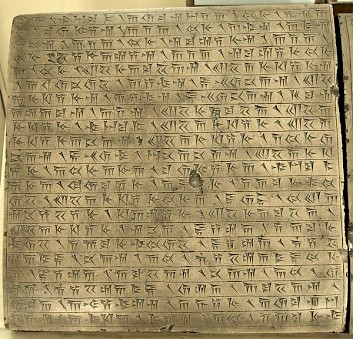Mathišta
Mathišta ("the greatest"): probably the title of the man who had appointed as the successor of the king in the Persian empire.

In one of the Achaemenid royal inscriptions, the co-called Harem inscription from Persepolis, the Persian king Xerxes writes:
Darius had other sons, but - thus was Ahuramazda's desire - my father Darius made me the greatest [mathišta] after himself. When my father Darius went away from the throne, by the grace of Ahuramazda I became king on my father's throne.
Several scholars have argued that mathišta (which simply means "the greatest" and can also be used in common expressions like "Ahuramazda is the greatest of the gods") was the title of the man who had been chosen by the great king as his successor. This is not completely certain, but it is a reasonable hypothesis and it is corroborated by the story about a "Masistes" told by the Greek researcher Herodotus of Halicarnassus.note This Masistes was clearly a very powerful man.
What is certain, or almost certain, is that the intended successor served as satrap of Bactria. In this important part of the Achaemenid Empire the crown prince was to learn what governing a country was about. It is interesting to note that after the death of Darius III Codomannus in the summer of 330, the satrap of Bactria, Bessus, immediately became king (according to the Alexander Chronicle, a recently republished Babylonian chronicle that tells more about Alexander the Great).
It is likely that Seleucus I Nicator, the successor of Alexander, was thinking about the office of mathišta when he appointed his son Antiochus I Soter as intended successor and satrap of Bactria.
Literature
- Heleen Sancisi-Weerdenburg, Yauna en Persai. Grieken en Perzen in een ander perspectief (1980), Groningen